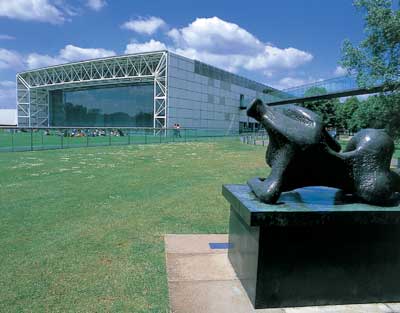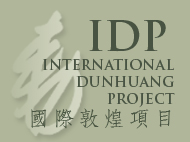|
Susan Whitfield
Susan Whitfield (born 1960) is a British scholar, currently Professor in Silk Road Studies at the Sainsbury Institute for the Study of Japanese Arts and Cultures (SISJAC), University of East Anglia. She previously worked at the British Library in London, England. She specialises in the history and archaeology of the Silk Road but has also written on human rights and censorship in China. Career Whitfield obtained a PhD in historiography from SOAS, University of London in 1995, with a dissertation entitled ''Politics against the Pen'' on the Tang dynasty poet Liu Zongyuan. Whitfield was the first director of the International Dunhuang Project, a position which she held for 24 years, from 1993 until July 2017. In this capacity she was involved in research and cataloguing of Central Asian manuscripts at the British Library and elsewhere. She has a particular interest in censorship and forgeries from Dunhuang. In an interview at the University of Minnesota in 2013, she talks about ... [...More Info...] [...Related Items...] OR: [Wikipedia] [Google] [Baidu] |
Sainsbury Institute For The Study Of Japanese Arts And Cultures
The Sainsbury Institute for Art (SIfA) is based in the Sainsbury Centre for Visual Arts at the University of East Anglia in the United Kingdom. Organization The Sainsbury Institute for Art is an umbrella organization that brings together the activities and expertise of the Sainsbury Centre for Visual Arts, the School of World Art Studies and Museology (WAM), the Sainsbury Institute for the Study of Japanese Arts and Cultures (SISJAC) and the Sainsbury Research Unit for the Arts of Africa, Oceania and the Americas (SRU). "The Institute works to develop an integrated approach to art as a global phenomenon through a combination of disciplinary approaches, exhibitions and programming".SIfA was officially opened on 16 November 2011. Neil MacGregor, Director of the British Museum, gave the inaugural lecture. The institute's study area was designed by Foster and Partners. Centre for Archaeology and Heritage The Sainsbury Institute has among other divisions the Centre for Archaeo ... [...More Info...] [...Related Items...] OR: [Wikipedia] [Google] [Baidu] |
International Dunhuang Project
The International Dunhuang Project (IDP) is an international collaborative effort to conserve, catalogue and digitise manuscripts, printed texts, paintings, textiles and artefacts from the Mogao caves at the Western Chinese city of Dunhuang and various other archaeological sites at the eastern end of the Silk Road. The project was established by the British Library in 1994, and now includes twenty-two institutions in twelve countries. the online IDP database comprised 143,290 catalogue entries and 538,821 images. Most of the manuscripts in the IDP database are texts written in Chinese, but more than fifteen different scripts and languages are represented, including Brahmi, Kharosthi, Khotanese, Sanskrit, Tangut, Tibetan, Tocharian and Old Uyghur. Victor H. Mair, Professor of Chinese Language and Literature at the University of Pennsylvania, has noted that there are many advantages of the IDP providing high resolution digital images of Dunhuang manuscripts online for a ... [...More Info...] [...Related Items...] OR: [Wikipedia] [Google] [Baidu] |
English Historians
English usually refers to: * English language * English people English may also refer to: Peoples, culture, and language * ''English'', an adjective for something of, from, or related to England ** English national identity, an identity and common culture ** English language in England, a variant of the English language spoken in England * English languages (other) * English studies, the study of English language and literature * ''English'', an Amish term for non-Amish, regardless of ethnicity Individuals * English (surname), a list of notable people with the surname ''English'' * People with the given name ** English McConnell (1882–1928), Irish footballer ** English Fisher (1928–2011), American boxing coach ** English Gardner (b. 1992), American track and field sprinter Places United States * English, Indiana, a town * English, Kentucky, an unincorporated community * English, Brazoria County, Texas, an unincorporated community ... [...More Info...] [...Related Items...] OR: [Wikipedia] [Google] [Baidu] |
Employees Of The British Library
Employment is a relationship between two parties regulating the provision of paid labour services. Usually based on a contract, one party, the employer, which might be a corporation, a not-for-profit organization, a co-operative, or any other entity, pays the other, the employee, in return for carrying out assigned work. Employees work in return for wages, which can be paid on the basis of an hourly rate, by piecework or an annual salary, depending on the type of work an employee does, the prevailing conditions of the sector and the bargaining power between the parties. Employees in some sectors may receive gratuities, bonus payments or stock options. In some types of employment, employees may receive benefits in addition to payment. Benefits may include health insurance, housing, disability insurance. Employment is typically governed by employment laws, organisation or legal contracts. Employees and employers An employee contributes labour and expertise to an ... [...More Info...] [...Related Items...] OR: [Wikipedia] [Google] [Baidu] |
Alumni Of SOAS University Of London
Alumni (singular: alumnus (masculine) or alumna (feminine)) are former students of a school, college, or university who have either attended or graduated in some fashion from the institution. The feminine plural alumnae is sometimes used for groups of women. The word is Latin and means "one who is being (or has been) nourished". The term is not synonymous with "graduate"; one can be an alumnus without graduating ( Burt Reynolds, alumnus but not graduate of Florida State, is an example). The term is sometimes used to refer to a former employee or member of an organization, contributor, or inmate. Etymology The Latin noun ''alumnus'' means "foster son" or "pupil". It is derived from PIE ''*h₂el-'' (grow, nourish), and it is a variant of the Latin verb ''alere'' "to nourish".Merriam-Webster: alumnus .. Separate, but from th ... [...More Info...] [...Related Items...] OR: [Wikipedia] [Google] [Baidu] |
1960 Births
Year 196 ( CXCVI) was a leap year starting on Thursday (link will display the full calendar) of the Julian calendar. At the time, it was known as the Year of the Consulship of Dexter and Messalla (or, less frequently, year 949 ''Ab urbe condita''). The denomination 196 for this year has been used since the early medieval period, when the Anno Domini calendar era became the prevalent method in Europe for naming years. Events By place Roman Empire * Emperor Septimius Severus attempts to assassinate Clodius Albinus but fails, causing Albinus to retaliate militarily. * Emperor Septimius Severus captures and sacks Byzantium; the city is rebuilt and regains its previous prosperity. * In order to assure the support of the Roman legion in Germany on his march to Rome, Clodius Albinus is declared Augustus by his army while crossing Gaul. * Hadrian's wall in Britain is partially destroyed. China * First year of the '' Jian'an era of the Chinese Han Dynasty. * Em ... [...More Info...] [...Related Items...] OR: [Wikipedia] [Google] [Baidu] |
Viking Press
Viking Press (formally Viking Penguin, also listed as Viking Books) is an American publishing company owned by Penguin Random House. It was founded in New York City on March 1, 1925, by Harold K. Guinzburg and George S. Oppenheim and then acquired by the Penguin Group in 1975. History Guinzburg, a Harvard graduate and former employee of Simon and Schuster and Oppenheimer, a graduate of Williams College and Alfred A. Knopf, founded Viking in 1925 with the goal of publishing nonfiction and "distinguished fiction with some claim to permanent importance rather than ephemeral popular interest." B. W. Huebsch joined the firm shortly afterward. Harold Guinzburg's son Thomas became president in 1961. The firm's name and logo—a Viking ship drawn by Rockwell Kent—were meant to evoke the ideas of adventure, exploration, and enterprise implied by the word "Viking." In August 1961, they acquired H.B. Huesbsch, which maintained a list of backlist titles from authors such as James Jo ... [...More Info...] [...Related Items...] OR: [Wikipedia] [Google] [Baidu] |
University College London
, mottoeng = Let all come who by merit deserve the most reward , established = , type = Public research university , endowment = £143 million (2020) , budget = £1.544 billion (2019/20) , chancellor = Anne, Princess Royal(as Chancellor of the University of London) , provost = Michael Spence , head_label = Chair of the council , head = Victor L. L. Chu , free_label = Visitor , free = Sir Geoffrey Vos , academic_staff = 9,100 (2020/21) , administrative_staff = 5,855 (2020/21) , students = () , undergrad = () , postgrad = () , coordinates = , campus = Urban , city = London, England , affiliations = , colours = Purple and blue celeste , nickname ... [...More Info...] [...Related Items...] OR: [Wikipedia] [Google] [Baidu] |
UCL Institute Of Archaeology
UCL's Institute of Archaeology is an academic department of the Social & Historical Sciences Faculty of University College London (UCL) which it joined in 1986 having previously been a school of the University of London. It is currently one of the largest centres for the study of archaeology, cultural heritage and museum studies in the world, with over 100 members of staff and 600 students housed in a 1950s building on the north side of Gordon Square in the Bloomsbury area of Central London. History The Institute of Archaeology had its origins in Mortimer Wheeler's vision of a centre for archaeological training in the United Kingdom, which he conceived in the 1920s. Wheeler and Tessa Verney Wheeler, his wife and an archaeologist in her own right, lobbied colleagues and gathered funds to open the institute. The Wheeler's ambitions were realised when the institute was officially opened in 1937, with Mortimer Wheeler as its first director. Among its early members of staff we ... [...More Info...] [...Related Items...] OR: [Wikipedia] [Google] [Baidu] |
Dunhuang
Dunhuang () is a county-level city in Northwestern Gansu Province, Western China. According to the 2010 Chinese census, the city has a population of 186,027, though 2019 estimates put the city's population at about 191,800. Dunhuang was a major stop on the ancient Silk Road and is best known for the nearby Mogao Caves. Dunhuang is situated in an oasis containing Crescent Lake and Mingsha Shan (, meaning "Singing-Sand Mountain"), named after the sound of the wind whipping off the dunes, the singing sand phenomenon. Dunhuang commands a strategic position at the crossroads of the ancient Southern Silk Route and the main road leading from India via Lhasa to Mongolia and Southern Siberia, and also controls the entrance to the narrow Hexi Corridor, which leads straight to the heart of the north Chinese plains and the ancient capitals of Chang'an (today known as Xi'an) and Luoyang. Administratively, the county-level city of Dunhuang is part of the prefecture-level city of Jiuqu ... [...More Info...] [...Related Items...] OR: [Wikipedia] [Google] [Baidu] |
Liu Zongyuan
Liu Zongyuan (; 77328 November 819) was a Chinese philosopher, poet, and politician who lived during the Tang Dynasty. Liu was born in present-day Yongji, Shanxi. Along with Han Yu, he was a founder of the Classical Prose Movement. He has been traditionally classed as one of the " Eight Great Prose Masters of the Tang and Song". Biography Liu Zongyuan was born in 773. His courtesy name was Zihou (). Liu Zongyuan's civil service career was initially successful; however, in 805, he fell out of favour with the imperial government because of his association with a failed reformist movement. He was exiled first to Yongzhou, Hunan, and then to Liuzhou, Guangxi, where he eventually became the city Governor. A park and temple in Liuzhou is dedicated to his memory. His exile allowed his literary career to flourish: he produced poems, fables, reflective travelogues and essays synthesizing elements of Confucianism, Taoism and Buddhism. He died in 819. Works Liu's best-known trav ... [...More Info...] [...Related Items...] OR: [Wikipedia] [Google] [Baidu] |






